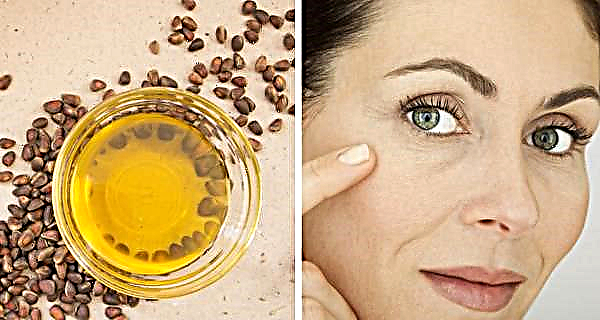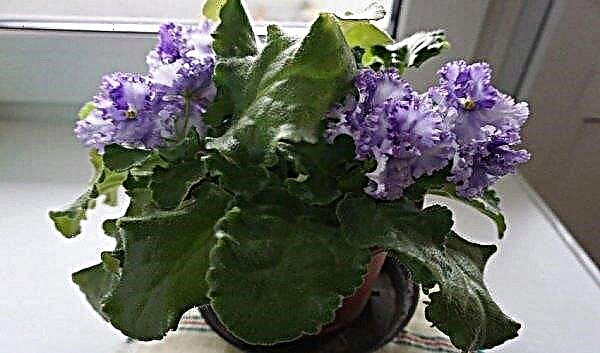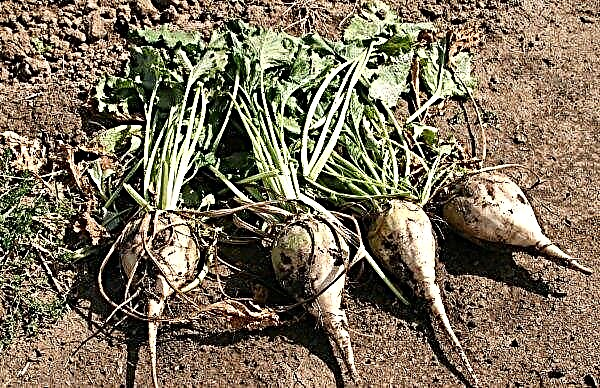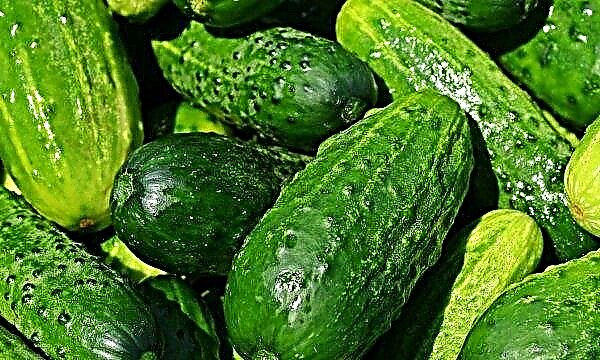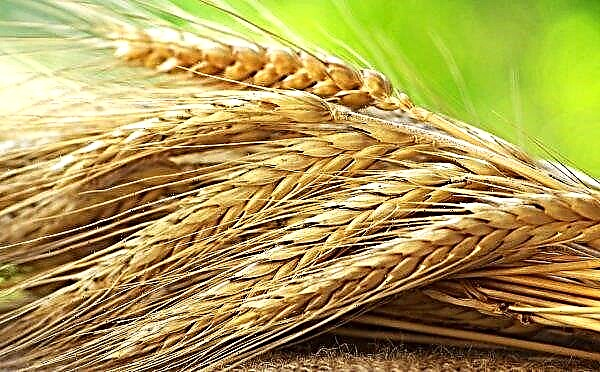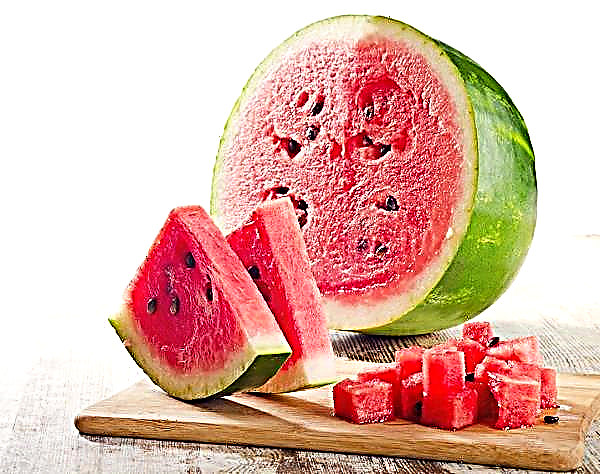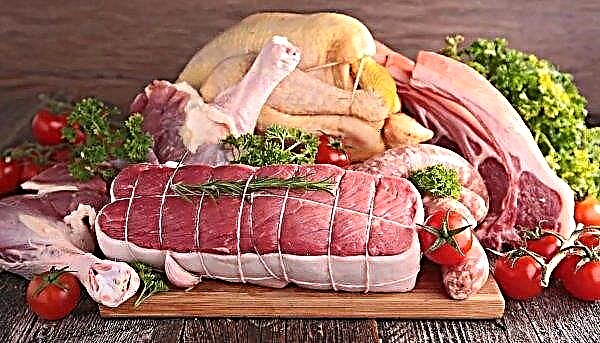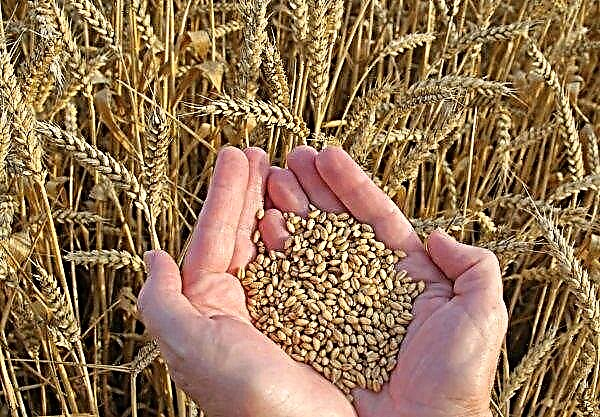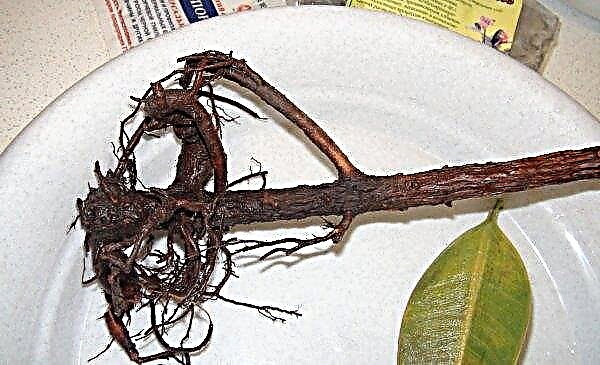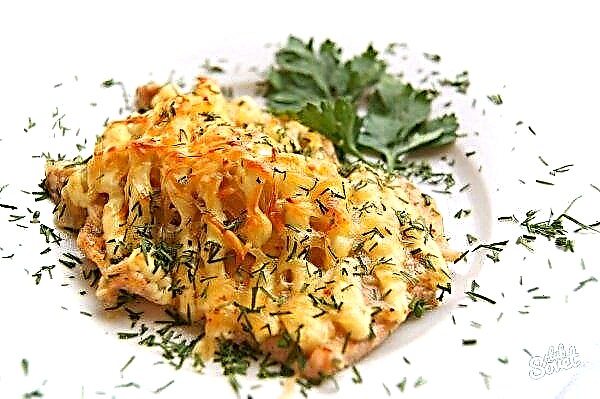Many diseases of pigeons are rapidly transmitted from bird to bird and can even be dangerous to humans. There are a number of drugs that will help both in the treatment and in the prevention of most ailments. Learn more about them.
Features of taking medication
The pigeon has an intensive metabolism and a short intestine - accordingly, its reaction to the drug is quick, so it is best to give medicine with water and food.
It is necessary to take into account what changes in bird drinking occur depending on air temperature and type of feeding: pigeons drink less in winter and more when eating peas and corn.
Did you know? Pigeons are able to recognize people in person and react to them in accordance with past human behavior.
There are various ways to administer drugs. The treatment combined with food is more convenient in such cases:
The treatment combined with food is more convenient in such cases:
- for water insoluble substances;
- for gradual and prolonged exposure, since the food is in the intestines longer.
Bitter medicines, even diluted in water and mixed with food, doves are reluctant to eat, and a significant period of fasting may be required. To reduce bitterness, sugar or glucose is added. If the disease has led to loss of appetite, the medicine is given with a solution using a pipette, probe or injections.
One of the most important components of taking medications is the right dosage. The effects of many drugs have not been tested on pigeons, and the dosage is indicated for larger animals. The exact dosage is calculated by the weight of the bird (per 1 kg). In some cases, the entire flock is processed, and then the approximate total weight of the birds is taken for calculation.
Important! Pigeons are highly sensitive to ethylene tetrachloride and carbon, so they should be avoided.
Chicks are more sensitive to drugs and consume more food, so the calculation is done differently for them:
- for a period of 10-20 days, 1/20 of the dose is allocated;
- for 21–40 days, take 1/10 part;
- for 40–70 take 1/5 part;
- for a period of more than 70 days - half the dose.

Universal Drugs Group
Allocate a group of universal veterinary drugs, which are used both for prevention and to help in the initial stage of the disease.
It includes:
- Parastop;
- Levamisole;
- Farmazin;
- Enroxil;
- Enrofloxacin;
- Vladivak;
- Sporoid;
- Enroflon (aqueous solution).
These drugs begin to be used if the bird eats poorly, behaves uneasily, and does not fly.
Recommended medications for treatment
Diseases of pigeons are divided into viral, non-infectious, invasive and bacterial; during the treatment process, pharmacy drugs, such as various antibiotics, are mainly used. A correctly diagnosed disease is the main condition for effective treatment.
Viral diseases
Among the most dangerous viral diseases, Newcastle disease or vaginalis, which causes paramyxovirus, is distinguished. For treatment use:
For treatment use:
- antiviral drugs with interferon Fosprenil or Immunofan (without mixing) are administered intramuscularly or orally;
- Nootropic Piracetam for relieving neurological symptoms. Capsules are dissolved in water and the fourth part is poured into the beak;
- vitamin complexes Galavit, Vikasol or Katazol for raising immunity;
- intestinal recovery drugs, enterosorbents and prebiotics, Linex, Carsil and Sporovit.
The smallpox virus in the skin form often passes without medical intervention, and with complications, broad-spectrum antibiotics and solutions of furatsilin and protargol are used to lubricate the pharynx.
Bacterial diseases
Ornithosis, previously considered viral, is caused by chlamydia and is an extremely contagious disease.
For treatment, antibiotics are used:
- tetracycline and doxycycline for adult birds, it is additionally necessary to exclude calcium from the feed;
- azithromycin and erythromycin for chicks.
Also, a course of vitamins is added to patients, their ears and nostrils are cleaned with chlorhexine or miramistin. After an antibiotic, intestinal restoration is performed with Sporovit or Linex.
Mycoplasmosis is difficult to treat, because it is caused by a special microorganism, which antibiotics act poorly. In case of diagnosis, apply:
- Eriprim BT - it is dissolved in water or mixed with food, and sulfur compounds are excluded from the diet;
- Enroflon - in the form of an aqueous solution they solder the birds for 4 days, hiding the bird from the sun and stop giving potassium, calcium and antacid preparations;
 For various bacterial infections also apply:
For various bacterial infections also apply:- Baytril - a solution of an antibiotic in different concentrations, which affects staphylococci and streptococci, salmonella and mycoplasma;
- Tiamulin - a broad-spectrum antibiotic, most effective for intestinal infections and inflammation of the respiratory system;
- Sulteprim - The most effective in salmonellosis and is characterized by rapid digestibility. Often combined with baytril.
In case of bacterial diseases, it is necessary to disinfect the room with a 5% solution of chloramine.
Important! The meat of pigeons taking antibiotics is suitable for consumption only 14 days after the last dose.
Vitamin deficiency
Most often, vitamin deficiency manifests itself in the spring and autumn periods, chicks are especially susceptible to it. It is necessary to constantly monitor the nutritional composition of pigeons. The most noticeable lack of vitamins A, D and E.
In addition to the correction of feed, you can use special vitamin complexes:
- Alben or Felucen, which includes gravel for better digestion by the bird;
- Chiktonik also enhances the immunity of the pigeon;
- Aminovital It contains not only vitamins, but also elements important for birds.
In the treatment of vitamin deficiencies, it is important to observe the necessary dosage so as not to bring pigeons to hypovitaminosis.
Parasite infections
Invasive diseases are caused by various parasites. Tick-borne knemidocoptosis, malophagosis, trichomoniasis and ascariasis are most common.
For the treatment of worms, ticks and other parasites, the following drugs are used:
- Antiparasit or Sporovit - a medicine that is used at the first sign of parasites in the body. The medication is distinguished by safety and duration of exposure;
- Trichopol, in veterinary medicine used in powder form for treatment and prevention;
- Furazolidone able to prevent possible complications. It is not prescribed to emaciated individuals and is not combined with other antibiotics;
- Ivermek fights against parasites inside and out, suitable for birds from 10 days. It is used before vaccination.
Important! It is recommended that cells with pigeons be placed on a light surface to quickly notice parasitic insects or their larvae.
Other diseases
Often found in pigeons, goiter disease. For the treatment of inflammation, washing with potassium permanganate or a solution of ichthyol is used, and with blockage they try to introduce vegetable oil and a small massage.
Rupture of air sacs or lung tissue can result from an impact. In this case, the accumulation of air is removed, making an incision in the appropriate place, and lubricated with a 5% iodine solution. Non-infectious bronchitis and laryngotracheitis are treated with protargol, potassium permanganate solution, soda solution, and in some cases, an aqueous solution of penicillin (from wheezing) is dripped.
Non-infectious bronchitis and laryngotracheitis are treated with protargol, potassium permanganate solution, soda solution, and in some cases, an aqueous solution of penicillin (from wheezing) is dripped.
With inflammation of the eyelids and eyes, drops with chloramphenicol are used.
Pigeon disease prevention
The pigeon breeder is required to take the necessary preventive measures to prevent diseases and reduce the strength of the lesion:
- limit the flock to 30–40 pigeons and provide them with a 5x4 m room with a height of 2.5 m;
- obligatory: weekly cleaning of feeders and drinking bowls, disinfection with bleach and quarterly treatment of nests and perches with hot water;
- prevent wild birds from entering the dovecote and quarantine new pigeons;
- timely vaccination;
- isolate a sick bird immediately and consult a veterinarian.
For prevention, you can use both medications and folk remedies.
Medicinal products
When vaccinating pigeons, the region of residence should be considered.
Most often, vaccination is carried out from:
- Newcastle disease (twigs);
- smallpox
- salmonellosis.
 To prevent twigs, there is a special La Sota vaccine (LASOTA), which is used to protect the younger generation of the flock (from 30 days old) by spraying in the dovecot.
To prevent twigs, there is a special La Sota vaccine (LASOTA), which is used to protect the younger generation of the flock (from 30 days old) by spraying in the dovecot.Did you know? The eyes of pigeons are distinguished by their unusual resistance to bright light. Their retina instantly reacts to a flash of lightning or a ray of the sun, changing its degree of transparency and density.
Also used:
- Avivak, for birds over 90 days old;
- Bergolac;
- Honeycomb (NB strain).
The interval between injections is one month, and the bird should be healthy at this time.
Folk remedies
The most popular folk medicine is made from bee honeycombs and is similar in action to Baitril. For tincture, take 60 g of propolis per half liter of alcohol and insist the mixture in a dark place for 4 days. The precipitate that appears is a sign of readiness, after which the solution is filtered and poured into drinking water.
A common supplement to feed and drink:
- tansy;
- apple cider vinegar;
- iodinol solution;
- oak bark;
- yeast.
 Domestic pigeons are susceptible to many diseases and it takes a lot of effort to maintain a healthy flock. Knowledge of modern methods of prevention and treatment is an important component of success in breeding birds.
Domestic pigeons are susceptible to many diseases and it takes a lot of effort to maintain a healthy flock. Knowledge of modern methods of prevention and treatment is an important component of success in breeding birds.

